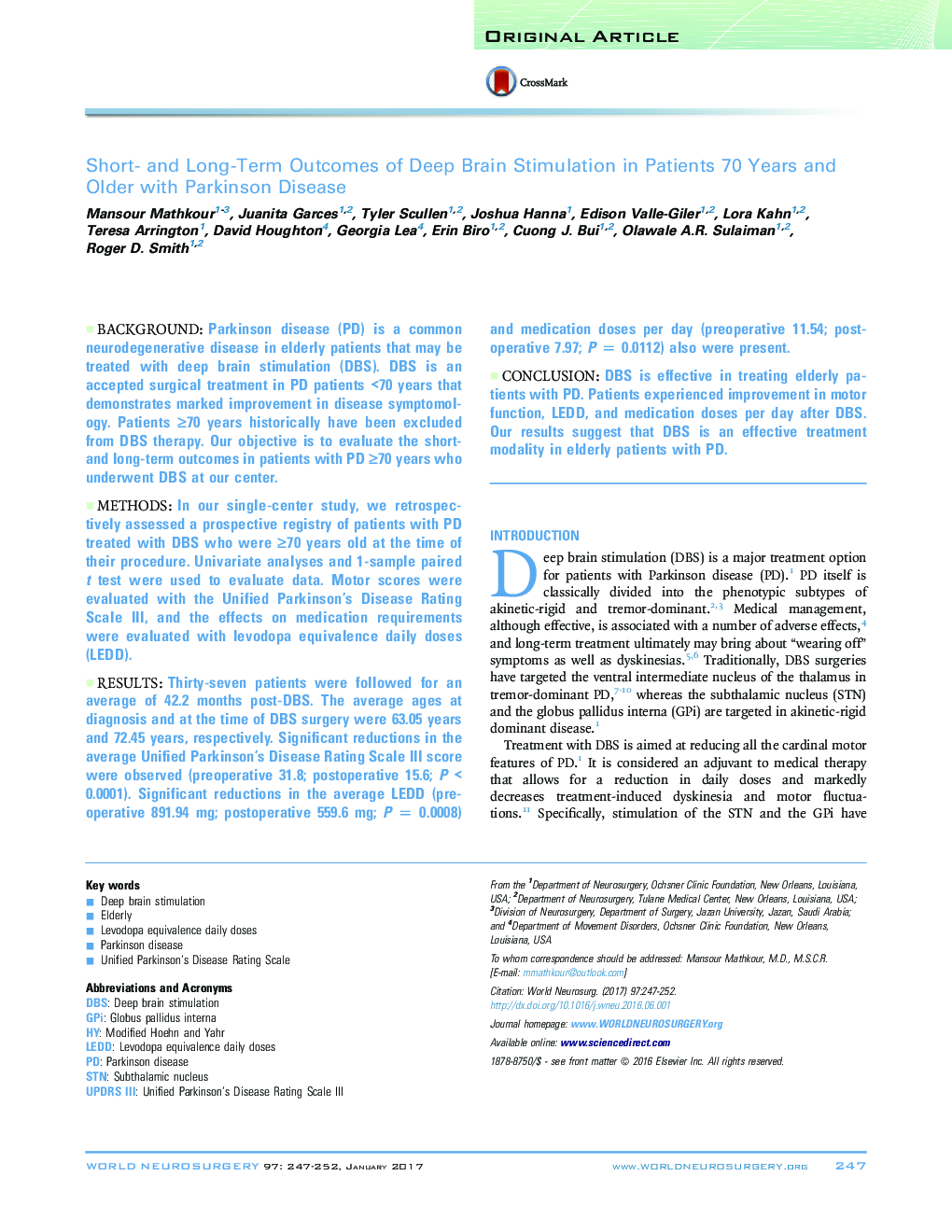| Article ID | Journal | Published Year | Pages | File Type |
|---|---|---|---|---|
| 5634718 | World Neurosurgery | 2017 | 6 Pages |
BackgroundParkinson disease (PD) is a common neurodegenerative disease in elderly patients that may be treated with deep brain stimulation (DBS). DBS is an accepted surgical treatment in PD patients <70 years that demonstrates marked improvement in disease symptomology. Patients â¥70 years historically have been excluded from DBS therapy. Our objective is to evaluate the short- and long-term outcomes in patients with PD â¥70 years who underwent DBS at our center.MethodsIn our single-center study, we retrospectively assessed a prospective registry of patients with PD treated with DBS who were â¥70 years old at the time of their procedure. Univariate analyses and 1-sample paired t test were used to evaluate data. Motor scores were evaluated with the Unified Parkinson's Disease Rating Scale III, and the effects on medication requirements were evaluated with levodopa equivalence daily doses (LEDD).ResultsThirty-seven patients were followed for an average of 42.2 months post-DBS. The average ages at diagnosis and at the time of DBS surgery were 63.05 years and 72.45 years, respectively. Significant reductions in the average Unified Parkinson's Disease Rating Scale III score were observed (preoperative 31.8; postoperative 15.6; P < 0.0001). Significant reductions in the average LEDD (preoperative 891.94 mg; postoperative 559.6 mg; P = 0.0008) and medication doses per day (preoperative 11.54; postoperative 7.97; P = 0.0112) also were present.ConclusionDBS is effective in treating elderly patients with PD. Patients experienced improvement in motor function, LEDD, and medication doses per day after DBS. Our results suggest that DBS is an effective treatment modality in elderly patients with PD.
